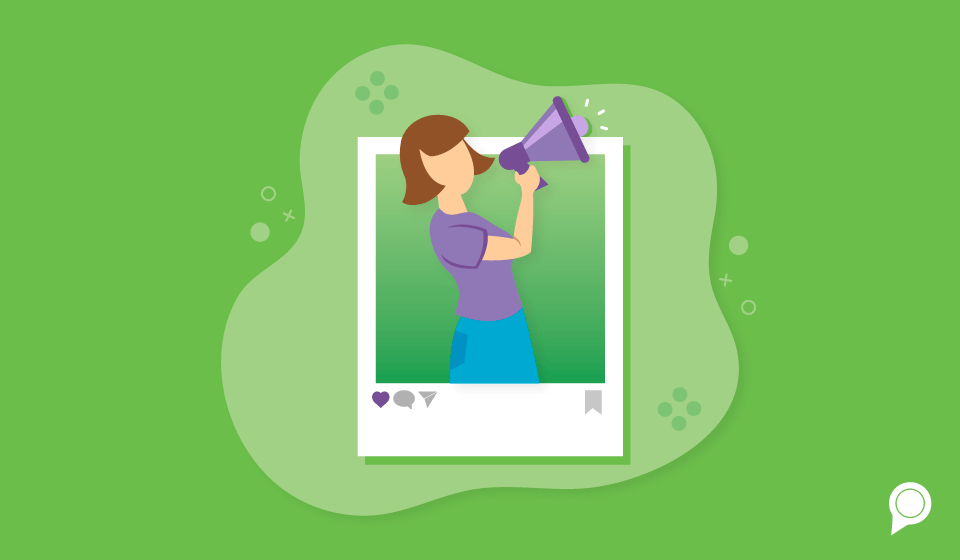

Picture this — you're scrolling through social media and you see a post from someone you follow talking about a new product they love. Now you want to know more about that product.
Welcome to the world of influencer marketing. You’ve probably heard the term “influencer” before, but how exactly does influencer marketing work?
We'll touch on everything you need to know in this blog.
An influencer is a social media personality who has the power to affect purchasing decisions because of their knowledge and relationship with a large following of people.
You’ve likely encountered influencer marketing on social media and not even noticed. Take one of your favorite celebrities, for example. Do they have posts on their feed promoting a specific product or brand?
They’re using their influence as a celebrity to convince their followers to buy a product, and many brands are taking advantage of these partnerships.
The social identity theory causes people to base some of their identity on group belonging.
This is why people are so attracted to influencers and why influencer marketing works. If a popular influencer promotes a product, their followers are more likely to purchase it so they can continue to feel like part of the influencer's "group."
Not only does social identity play into the power of influencers, but so does the commonly held distrust and disinterest surrounding traditional media and advertisements.
Trust in traditional media has seen a drastic decline in the last few years. But social media trust has seen the opposite, growing by nearly five percent in the past year.
This trust factor even plays into mainstream media celebrities. And while celebrities can be considered influencers, this role is not only limited to them.
Some influencers have established their notoriety solely through social media, YouTube, etc. rather than through traditional media, and people are proving to favor these personalities the same way they do mainstream-media celebrities.
In younger generations, 70 percent find social media influencers outside of traditional media to be more trustworthy than celebrities.
Combine this perceived trust with feelings of belonging and it becomes clear why influencers are so powerful.
Convinced that influencer branding and marketing is worth your while yet? If not, let us hit you with some stats:
Now let’s talk about micro-influencers. These are influencers with more moderate followings than celebrities. This smaller following means they can interact and engage with followers more easily. Surprisingly, micro-influencers have just as much—or even more—power as a celebrity influencer.
About 82 percent of consumers said they were highly likely to consider a recommendation of a product or service by a micro-influencer.
Micro-influencers also drive seven times more engagement through Instagram than influencers with larger followings.
Partnering with a micro-influencer can save your small business some big bucks. They'll be able to drive more engagement without the hefty price tag of a larger celebrity.
Instagram is even offering businesses the option to take these influencer promotional posts and use them as ads in users’ feeds. These are called branded content ads. Want to know more about this new option? Click here to read all about it.
It’s all about change in the world of digital marketing, so think about embracing this one as well.
Influencers are proving their worth through social media sponsorships and promotions, and their impact is projected to keep growing.
Are you considering using social media as a part of your business marketing? RevLocal has the plan and services you need to get started.
Subscribe to our email list to get the latest digital marketing content delivered to your inbox each week!